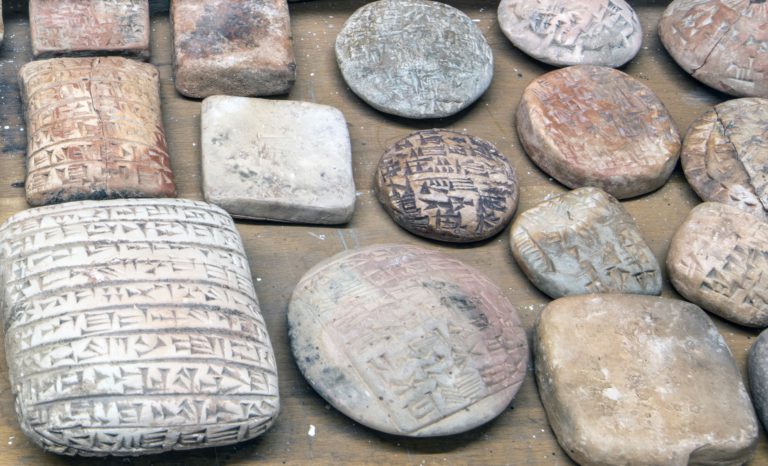Looting of antiquities in times of pandemic
30 May 2020
The lockdown imposed on a large part of the world's population due to the COVID-19 pandemic has forced archaeologists, like so many others, to continue their activities from a distance, from their homes. Archaeological sites, deserted by scientists, have become the prey of antiquities looters who no longer hesitate to traffic in broad daylight, on the Internet, while justice is slow.
In Judea and Samaria, for example, thieves dug openings to break into a cave in the Mount Kabir nature reserve, between Elon Moreh and the Jordan Valley, and damaged the site of Khirbet al-Marjama, the remains of which date back to the Bronze Age. Over 100 other archaeological sites in the Siloh Valley were also vandalised.
As a result, the illegal online antiquities trade is growing rapidly during this health crisis. The Antiquities Trafficking and Heritage Anthropology Research (ATHAR) project has noted a marked increase in Facebook posts during lockdown, with photos of looted archaeological objects from the Near and Middle East and North Africa. The objects that are most easily stolen are coins and ceramics. Some of these items are looted by workers who have lost their jobs due to the crisis, especially in the tourism industry. ATHAR is asking for the closure of these sites, and for the preservation of the existing digital data. The context of the discovery of objects is rarely known in the case of looting. In order to certify the origin and authenticity of such objects, the thieves photograph them in situ, during the theft.
This antiquities market would not exist if there were no demand, and this demand encourages both looters and forgers. Some of them take advantage of the high demand for antiquities to sell fakes. In July 2019, two trunks from Bahrain were seized and opened at Heathrow airport, containing 190 Mesopotamian-type cuneiform tablets, ceramics, figurines and cylinder seals. A quick examination of these objects by curators from the British Museum showed that they were fakes. There are probably as many fakes on the antiquities markets as there are genuine archaeological objects.

The authorities have not been idle. At the beginning of May, as part of a vast international operation conducted since autumn 2019 in 103 countries, Interpol announced the arrest of more than a hundred people and the seizure of almost twenty thousand objects, including ancient coins.
The looting of the archaeological heritage of the Near and Middle East has increased sharply since the beginning of the 21st century. The worst is to be feared for the summer and autumn of 2020, as the vast majority of missions have had to cancel their scheduled excavations. Ancient sites, also deserted by tourists due to the pandemic and traffic restrictions, are now at the mercy of thieves.


